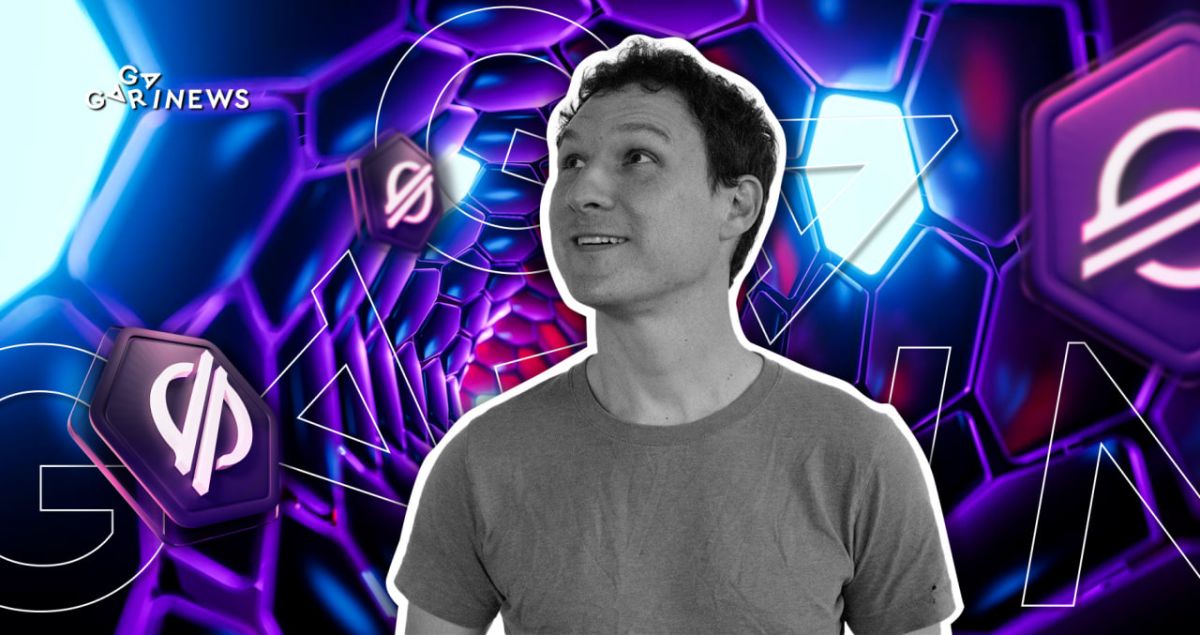Jed McCaleb: From Mt.Gox to Stellar

Only a handful remember that the seismic collapse of the Mt.Gox exchange in 2014 and the promising Stellar Development Foundation both sprang from the mind of the same individual — the gifted developer, Jed McCaleb.
On this page
Well-known facts about McCaleb
1. McCaleb hails from Fayetteville, North Carolina, and is 48 years old. He dismissed the idea of higher education as a frivolous waste of time. In Jed's perspective, coding is a craft honed by practice, not theory. Therefore, he plunged headlong into development right after college.
2. McCaleb has been a trailblazer in the realm of decentralized systems and blockchain technology. Back in 2007, he masterminded and brought to life the eDonkey2000 network, which, at its peak, was one of the largest platforms for file sharing.
3. Later, in 2010, he birthed Mt.Gox, the world's inaugural cryptocurrency exchange. Just a year after its creation, he handed it over to French developer Mark Karpelès. Under its new stewardship, the platform met a catastrophic end.
4. Following this episode, McCaleb was courted by Ripple to assume the role of technical director. In 2011, three engineers, including David Schwartz, Jed McCaleb, and Arthur Britto, who had previously been crafting code for the BTC blockchain, set out to develop XRP. Their vision was to create a digital currency for swift international transactions. Between 2011 and 2013, Jed was a co-founder at Ripple. However, it soon became apparent that his vision for the project's future diverged from that of the other founders. McCaleb eventually parted ways with Ripple, a move that sparked a major controversy, igniting discussions across the crypto community.
5. McCaleb now serves as the chief architect of the open Stellar network, which he unveiled in 1014. He also wears the hats of co-founder and chief technical officer at the Stellar Development Foundation. The XLM cryptocurrency is widely seen as a direct rival to XRP, a fact that Jed doesn't dispute. He candidly asserts that his current project has given him the canvas to realize the ideas his former colleagues couldn't appreciate.
6. He has also founded the Astera Institute, an organization dedicated to forging cutting-edge technologies and creating unprecedented opportunities for scientific advancement. He is primarily responsible for spearheading its artificial intelligence development efforts.
7. In addition, he is a co-founder and a trusted advisor to the CEO of Arcadia Science, a firm committed to studying evolution and crafting the biology of new organisms.
Little-known facts about McCaleb
1. Jed McCaleb first ventured into creating a decentralized peer-to-peer information exchange platform in 2002. That's when he developed the Kademlia algorithm, utilized in the Overnet network. At its closure in 2008, the network hosted more than half a million users. However, the platform was shut down due to the Recording Industry Association of America (RIAA) claims, as it was used to distribute pirated content.
2. The McCaleb-created cryptocurrency exchange, Mt.Gox, is an acronym for “Magic: The Gathering Online Exchange”. In 2008, the platform was initially designed for trading collectible cards from the popular online game “Magic: The Gathering”, which Jed was an enthusiast of. Cryptocurrency trading wasn't even on the radar at that time. The platform morphed into a cryptocurrency exchange only in 2010.
3. Mt.Gox was plagued with significant security vulnerabilities. In 2014, a hacking incident resulted in a debt of 650,000 BTC in user balances. These funds had been accumulating in client wallets between 2011 and 2013. Jed attributed this issue to Mark Karpelès, who had tampered with the project's code after acquiring it. It is possible that the new owner intentionally created these vulnerabilities, allowing the users' funds to be drained.
4. When McCaleb left Ripple in 2014, his wallet contained 9 billion XRP, which represented about 9% of the total supply of tokens. He received these funds in 2012 when the XRP Ledger was established. If Jed had offloaded his assets immediately, it would have influenced the market price. According to an arrangement with the Ripple Labs Board of Directors, he pledged to gradually dispose of XRP in limited portions over eight years. Moreover, he vowed to allocate 2 billion tokens for charitable endeavors. The last portion was transferred on July 17, 2022. Currently, Jed's account only holds 46 XRP.
McCaleb netted around $2.5 billion from his XRP sell-off. Source: siamblockchain
5. Ripple Labs' legal team is vexed that the SEC is charging project founders, Brad Garlinghouse and Chris Larsen, while overlooking McCaleb, who amassed billions by selling his XRP, which are treated as securities.
6. Last year, Jed announced the inception of his own space venture, Vast, which aims to design space stations with artificial gravity for future space colonization. He is drawing in former staff members of SpaceX and Blue Origin to bring this concept to fruition.
7. Apart from his programming pursuits, surfing is his primary pastime.
8. In McCaleb's own words, he's a misanthrope. His preferred beings on Earth are octopuses and extraterrestrials, who, in his conviction, have long resided among us.
Quotes that characterize Jed McCaleb
I do have a distrust of authority. Or maybe not a distrust of authority, but I really appreciate freedom. I think it’s one of the fundamental things that people need.
After I sold Mt. Gox, I was thinking of ways to do Bitcoin without the mining. I had an idea about how to do it and I posted the idea on a forum hoping that someone else would make it, but no one did. Finally I did it myself because I couldn’t stop thinking about it. It’s something I believe needs to exist.
The way the global financial establishment is structured today, people are born into an economy just like they’re born into a political system. Stellar is a way out: it lets people participate in a worldwide, stable, financial network regardless of where they live.
The content on The Coinomist is for informational purposes only and should not be interpreted as financial advice. While we strive to provide accurate and up-to-date information, we do not guarantee the accuracy, completeness, or reliability of any content. Neither we accept liability for any errors or omissions in the information provided or for any financial losses incurred as a result of relying on this information. Actions based on this content are at your own risk. Always do your own research and consult a professional. See our Terms, Privacy Policy, and Disclaimers for more details.


























